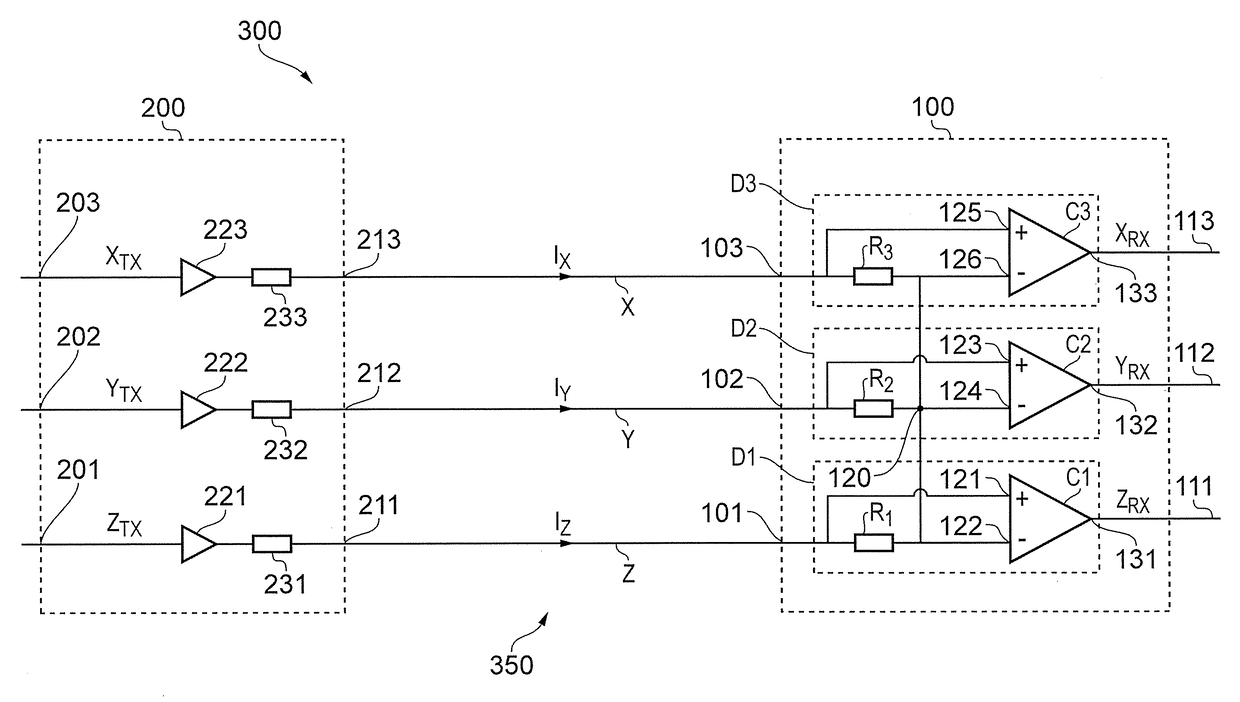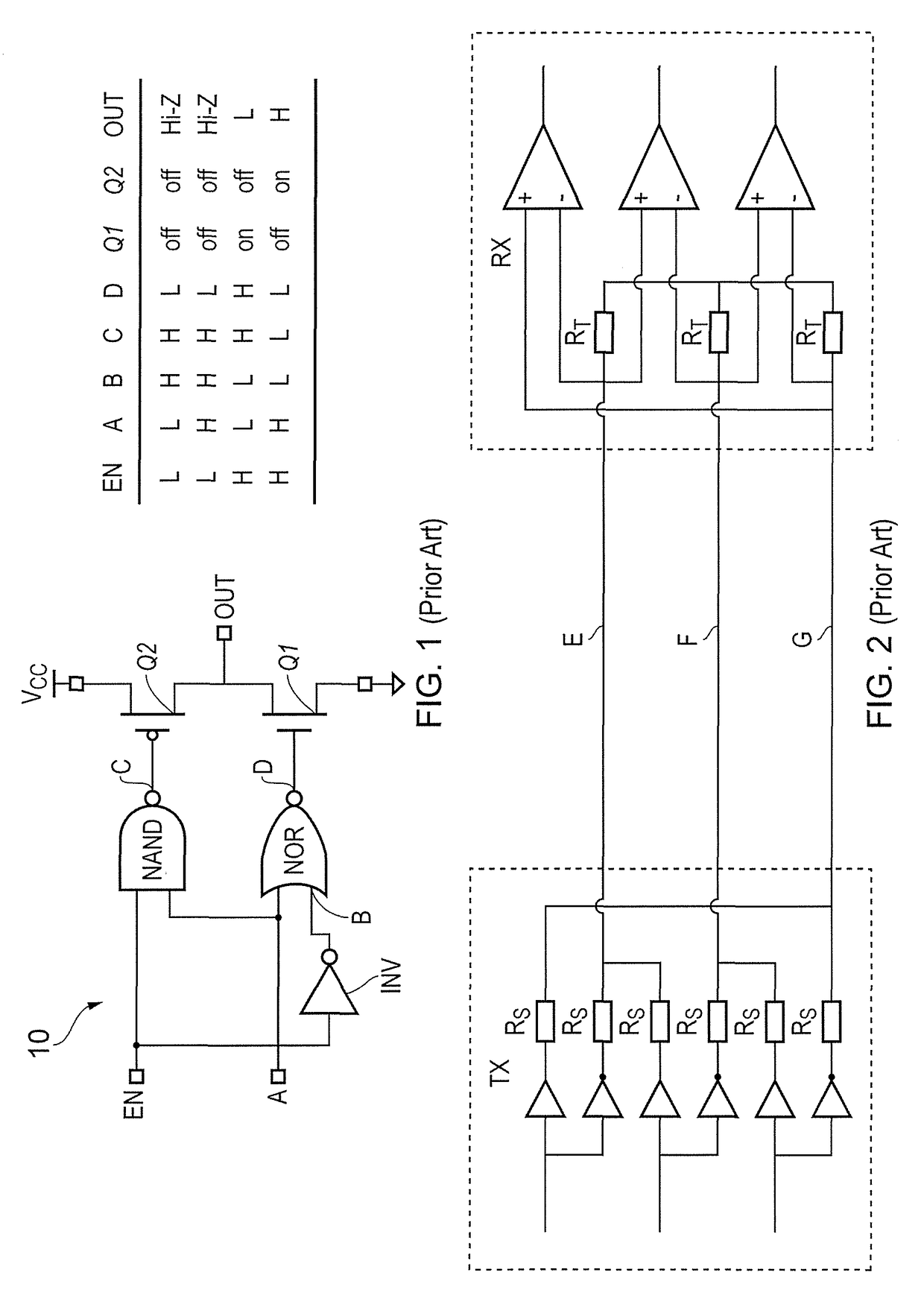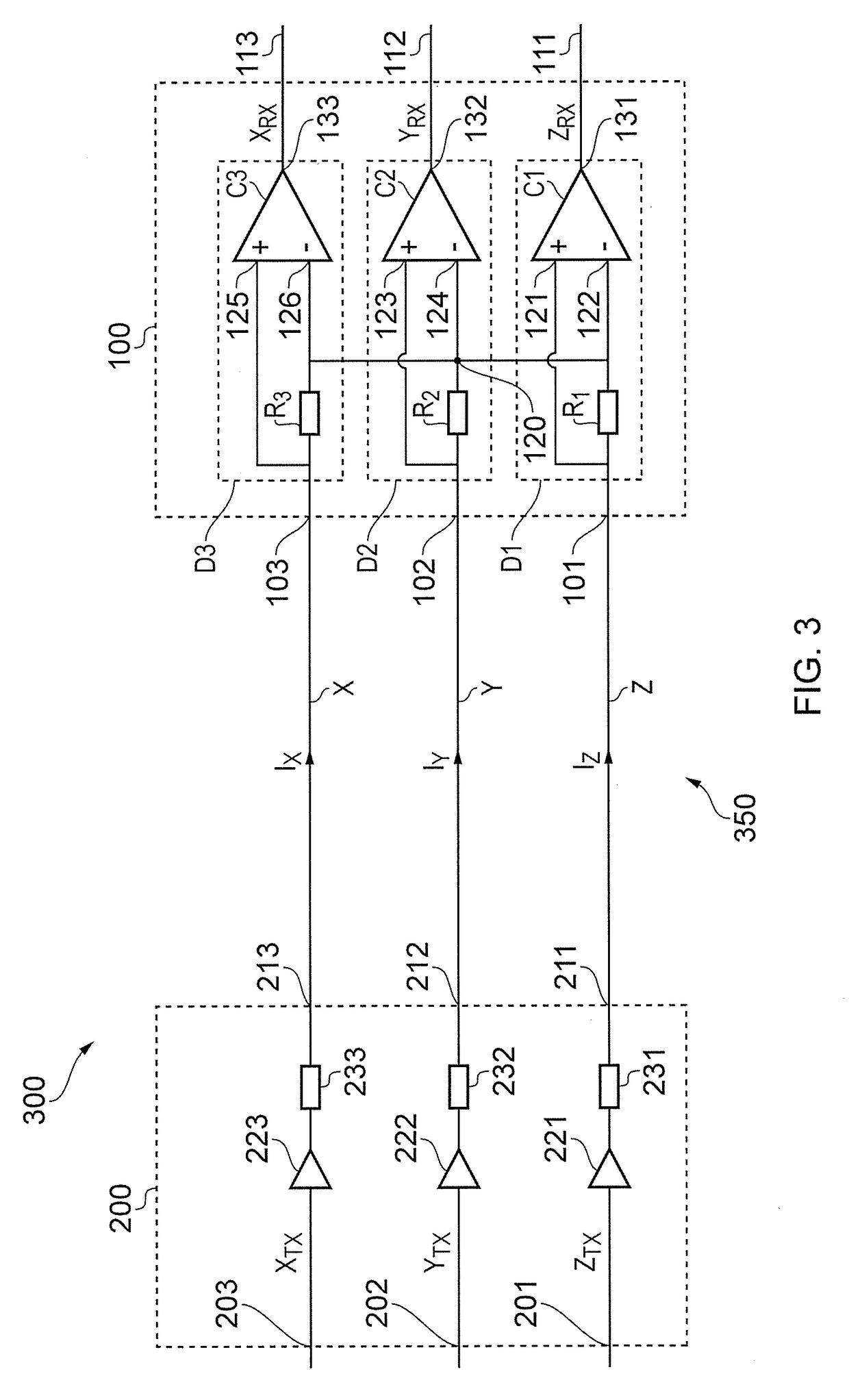N-wire two-level digital interface
a digital interface and receiver technology, applied in the field of n-wire digital interface receivers, can solve the problems of inter-symbolic interference, difficult physical implementation, phase locked loop power consumption becoming comparable to the power consumption of rfic frequency synthesisers, etc., to achieve low signal distortion, good impedance matching, and low timing skew
- Summary
- Abstract
- Description
- Claims
- Application Information
AI Technical Summary
Benefits of technology
Problems solved by technology
Method used
Image
Examples
Embodiment Construction
[0006]According to a first aspect there is provided a receiver for an N-wire digital interface, where N is any integer exceeding two, the receiver comprising:
[0007]N input terminals, a common node and N detection stages;
[0008]wherein each of the N detection stages comprises[0009]a resistive element coupled between the common node and a respective one of the N input terminals, and[0010]a comparator having a first input coupled to the respective one of the N input terminals and a second input coupled to the common node; and
[0011]wherein the resistive element of each of the detection stages has substantially the same resistance.
[0012]The receiver enables an N-wire digital interface to employ two-level signals which can provide low timing skew and low signal distortion using a simple transmitter with single ended drivers. Such a two-level driver can enable good impedance matching at the transmitter so that the receiver does not need to be matched. The resistive elements at the receiver ...
PUM
 Login to View More
Login to View More Abstract
Description
Claims
Application Information
 Login to View More
Login to View More - R&D
- Intellectual Property
- Life Sciences
- Materials
- Tech Scout
- Unparalleled Data Quality
- Higher Quality Content
- 60% Fewer Hallucinations
Browse by: Latest US Patents, China's latest patents, Technical Efficacy Thesaurus, Application Domain, Technology Topic, Popular Technical Reports.
© 2025 PatSnap. All rights reserved.Legal|Privacy policy|Modern Slavery Act Transparency Statement|Sitemap|About US| Contact US: help@patsnap.com



